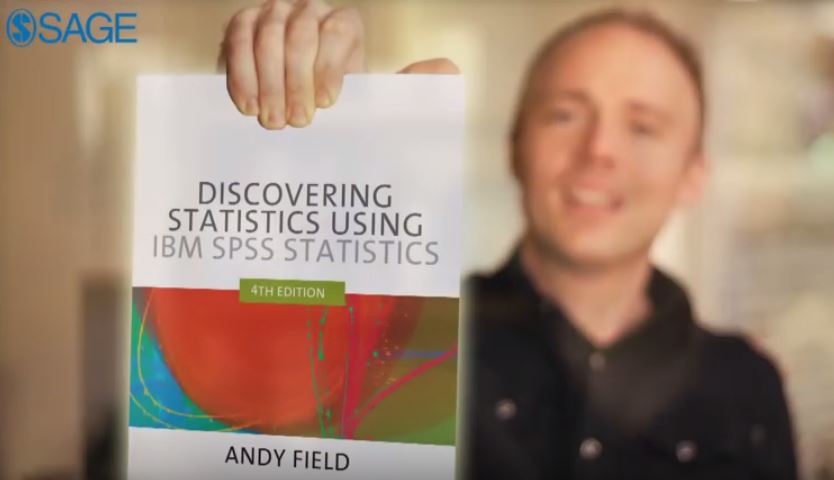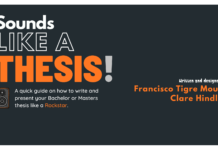STUDENTS’ FEAR OF STATISTICS
Every year, every semester, in almost all universities across the world a same phenomenon happens:
Students panic when hearing they will need to study or use“STATISTICS”.
It seems like the word “STATISTICS” represents an unachievable goal, a certainty of panic and dissolution. Many students give up on the race even before starting to run.
The same happened to me. In 2009 I was undertaking my PhD in Marketing at the University of Otago (New Zealand). During meetings with supervisors or while reading scientific literature, I came across terms and topics such as “Linear Models”, “Structural Equation Modelling”, “MANCOVA”, “Factor Analysis”, “Kruskal-Wallis test”, “Conjoint Analysis”. Many of these terms I had never heard, as I had not used during my Masters.
Often in supervision meetings, when such terms are mentioned, a certain response is common among students (I was no different):
You nod along and keep smiling as if you knew what your supervisor refers to.
However, certain symptoms and behaviors follows this response:
- Constant sweat in parts of your body you never knew you could sweat
- Fast heart beat
- Dry mouth
- Shaky fake smile
- Constant change in position on the chair during the meeting.
And why? Because inside you are in PANIC MODE.
Trust me, I’ve been there.
Following this, your thoughts change to: “I have to find a solution”.
TRYING TO FIND A SOLUTION
You walk to the nearest library and take home four different statistics books. At this stage you are feeling back to normal. You have books with you and these books mean you have found a solution and soon you will be absolutely fine dealing with “STATISTICS”.
After a nice shower and dinner you start browsing through the books you now have. Until page 12 all is fine and you are certain that you can solve the problem and become friends with “STATISTICS”. But around page 13 (or somewhere close to it) you suddenly get lost, do not understand any further and PANIC MODE is reinstalled.
This scene happens over, and over, and over, and over.
Trust me, I’ve been there.
FINDING LITERATURE FROM ANDY FIELD
Accidentally one day a Ukrainian PhD student in my department, that knew I was also on the process of designing an experiment, suggested to me a book called “How to Design and Report Experiments”. According to him, it was like “Statistics for Dummies”. But much BETTER.
What a relief. The book, written by Andy Field and Graham Hole, seemed so laid-back and the content seemed so EASY. Suddenly I had read passed page 13, and trust me, I was loving to read it.
Panic was slowly being converted into enthusiasm.
This is how I got in contact with his books and how I fell in love with statistics.
In the end of the year I won an award for “Best Presenter” among all PhD students in the Commerce division (University of Otago) and besides the certificate I also received a money voucher for the university bookstore. I spent it ordering a classic book: “Discovering Statistics Using IBM SPSS”.
There are many reasons why I connected with these books, and here are some of them:
1.The use of humor to facilitate learning: In science, often simple or complex ideas are presented through terms that are rarely used or through the combination of buzzwords to makes up difficult sentences.
To me, this is absolute waste that hinders learning. Simply because authors wish to “seem smart”. Andy Field constantly uses humor as trigger, posing jokes everywhere possible and though laughter and the positive emotional state that it triggers, the reader suddenly understands it all. Jokes refer to his cat, to imaginary creatures/characters, bizarre examples and even to unimaginable scientific publications.
And I love random/bizarre/socially inappropriate humor.
2. Direct application with statistical software: The, now classic, book “Discovering Statistics Using…” has many versions to different statistical software (e.g. SPSS, R, SAS). The book portrays an extremely simple step-by-step of each analysis and it becomes almost IMPOSSIBLE to get lost or not know what to do.
3. The passion for MUSIC: Almost all books have musical references, as Andy is a music enthusiast and also a drummer. For example, in “Discovering Statistics Using…”, every chapter starts with a reference to moment of his life and the connection with music. His most recent publication, “An Adventure in Statistics: The Reality Enigma” explain statistics through a fiction involving a musician and a scientist.
OVERVIEW OF ANDY FIELD’S BOOKS
1. How To Design and Report Experiments (Andy Field and Graham Hole)

Why is this a great book?
- I believe it can be a good introductory book for students with absolutely no clue whatsoever of statistics and that are developing their first causal studies. It is a fun, easy read and will certainly facilitate later understanding of more complex tests. I have it and certainly recommend it.
Where to find it?
2. Discovering Statistics Using… SPPS / R / SAS (Andy Field)
Why is this a great book?
- For me, this is a “must have”. A book to keep on the bed side table during your entire studies. In case you are not familiar with statistics software, it will also take you along from very basic procedures to more complex ones. Even for someone that is familiar with statistics, I believe it the perfect book to consult whenever there are doubts. I certainly do and always have a copy in my office.
Where to find them?
- SPSS Version
- R Version:
- SAS
3. An Adventure in Statistics: The Reality Enigma (Andy Field)

Why is this a great book?
- This is a really interesting way to present statistics. Andy has developed a super creative and crazy fiction story involving a musician and his scientist girlfriend, to explain statistics. Brilliant.
Where to find it?
- An Adventure in Statistics: The Reality Enigma – Sage Store
- An Adventure in Statistics: The Reality Enigma – Amazon
WHO IS ANDY FIELD?
Here are some descriptions from his own website, “Discovering Statistics.com“:
“Andy Field is Professor of Child Psychopathology at the University of Sussex, UK. Historically he researches emotion development in children, but increasingly he sits alone in a cave full of glow-worms listening to heavy metal and 70’s rock and looking at numbers.“

“His uncontrollable enthusiasm for teaching statistics to psychologists has led to teaching awards from the University of Sussex (2001, 2015, 2016), the British Psychological Society (2006) and a prestigious National Teaching fellowship (2010). He’s done lots of other academic things too but he finds it tedious trying to remember what they might have been. None of them really matter because in the unlikely event that you’ve ever heard of him it’ll be as the ‘Stats book guy’. In his spare time, he plays the drums very noisily in a heavy metal band, which he finds therapeutic.“
Here is Andy, with his unconventional humor, describing his most famous book, “Discovering Statistics Using…”:
FINAL THOUGHTS
Let me make something clear here:
I have no connection to the author, neither to his publisher.
And this is not a paid post.
Just like Andy’s books helped me go through difficult times with statistics and made me actually become passionate with this beautiful area of science, I have seen it help many other students.
I identify deeply with the view that the use of humor while explaining something does not imply lack of depth of the idea that being said. Exactly the opposite. Personally I believe humor and comedy should be everything, even funny. This is why I adore Charlie Chaplin.
This is how I believe education should be.
So, once and for all:
Forget all statistics books: Simply read Andy Field.
All will be fine.





